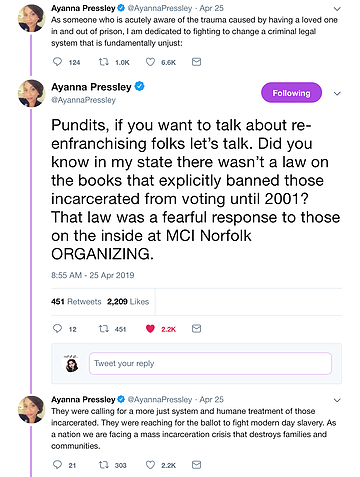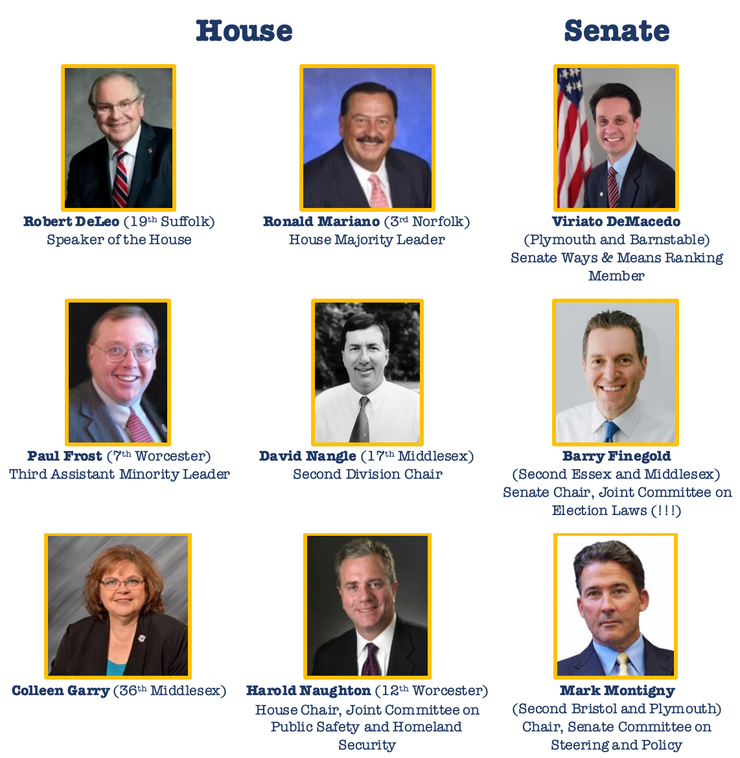After Bernie Sanders was asked about prisoner voting rights at a CNN town hall, Twitter erupted in debate over the issue. Many correctly pointed out that our prison system targets black, brown, and poor communities, and that using it to disenfranchise people is a form of structural racism and voter suppression. The debate got especially heated after Mayor Pete Buttigieg said that he does not believe prisoners should be allowed to vote.
Congresswoman Ayanna Pressley weighed in and made it clear where she stood, slamming pundits for using the Boston Marathon bombing to manufacture fear in voters. She also pointed out a lesser-known fact: two decades ago, the Massachusetts legislature voted not once, but twice to strip prisoners incarcerated for felonies of their voting rights. Many of those legislators are still in office, and many of them now have leadership positions in the Massachusetts legislature.

Before 2001, a prison sentence did not affect whether someone in Massachusetts could vote. But after increased political organizing by prisoners in the MCI-Norfolk prison, who had been working to form a Political Action Committee, lawmakers began a multi-year initiative to amend our state constitution to prohibit voting by those incarcerated for felonies. The process required two votes of the legislature before it could advance to a ballot question. A Republican filed the original bill, but Democrats were more than happy to go along with it judging by the overwhelming vote counts in favor.
And Massachusetts has some of the largest racial disparities in the country with regard to incarceration: we have the 14th largest black/white disparity, and the 9th largest Hispanic/white disparity, according to data from The Sentencing Project.
Here are the votes (for more, see this timeline of Massachusetts incarcerated voting rights from the Emancipation Initiative):
July 29, 1998: Vote to advance passes 155-34
June 28, 2000: Second vote to advance passes 144-45
Of those who voted in favor, 22 still currently hold their seats in the legislature. Only one of them, Senator Harriette Chandler, has since advocated for restoration of these rights. Here are the current legislators who voted YES in the June 28, 2000 vote:



This session, a group of Massachusetts lawmakers have filed legislation that would restore voting rights to prisoners incarcerated for felonies. S.12, filed by Sen. Adam Hinds, Rep. Jack Lewis, Sen. Jason Lewis, and Rep. Denise Provost, would remove the language that was added to the law after the 2001 vote. Senator Hinds spoke to The Appeal earlier this year, and mentioned that he still has concerns about racially-motivated voter suppression:
“When you walk through what we’re seeing in the disproportionate arrests of African Americans and how this is targeting people of color in prison, it feels that the original racialized motivation is still what is keeping this in place,” said Hinds, the sponsor of the proposed amendment.
But the bill only has 17 co-sponsors between the House and Senate. Why are our legislators so hesitant to expand voting rights?
